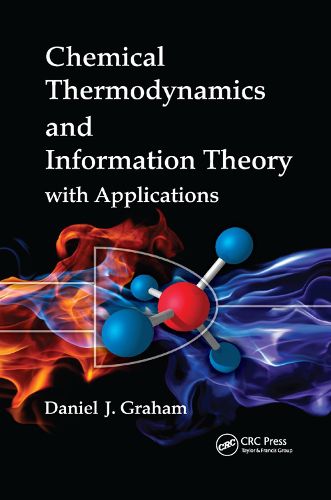Readings Newsletter
Become a Readings Member to make your shopping experience even easier.
Sign in or sign up for free!
You’re not far away from qualifying for FREE standard shipping within Australia
You’ve qualified for FREE standard shipping within Australia
The cart is loading…






Thermodynamics and information touch theory every facet of chemistry. However, the physical chemistry curriculum digested by students worldwide is still heavily skewed toward heat/work principles established more than a century ago. Rectifying this situation, Chemical Thermodynamics and Information Theory with Applications explores applications drawn from the intersection of thermodynamics and information theory-two mature and far-reaching fields.
In an approach that intertwines information science and chemistry, this book covers:
The informational aspects of thermodynamic state equations The algorithmic aspects of transformations-compression, expansion, cyclic, and more
The principles of best-practice programming How molecules transmit and modify information via collisions and chemical reactions
Using examples from physical and organic chemistry, this book demonstrates how the disciplines of thermodynamics and information theory are intertwined. Accessible to curiosity-driven chemists with knowledge of basic calculus, probability, and statistics, the book provides a fresh perspective on time-honored subjects such as state transformations, heat and work exchanges, and chemical reactions.
$9.00 standard shipping within Australia
FREE standard shipping within Australia for orders over $100.00
Express & International shipping calculated at checkout
Thermodynamics and information touch theory every facet of chemistry. However, the physical chemistry curriculum digested by students worldwide is still heavily skewed toward heat/work principles established more than a century ago. Rectifying this situation, Chemical Thermodynamics and Information Theory with Applications explores applications drawn from the intersection of thermodynamics and information theory-two mature and far-reaching fields.
In an approach that intertwines information science and chemistry, this book covers:
The informational aspects of thermodynamic state equations The algorithmic aspects of transformations-compression, expansion, cyclic, and more
The principles of best-practice programming How molecules transmit and modify information via collisions and chemical reactions
Using examples from physical and organic chemistry, this book demonstrates how the disciplines of thermodynamics and information theory are intertwined. Accessible to curiosity-driven chemists with knowledge of basic calculus, probability, and statistics, the book provides a fresh perspective on time-honored subjects such as state transformations, heat and work exchanges, and chemical reactions.